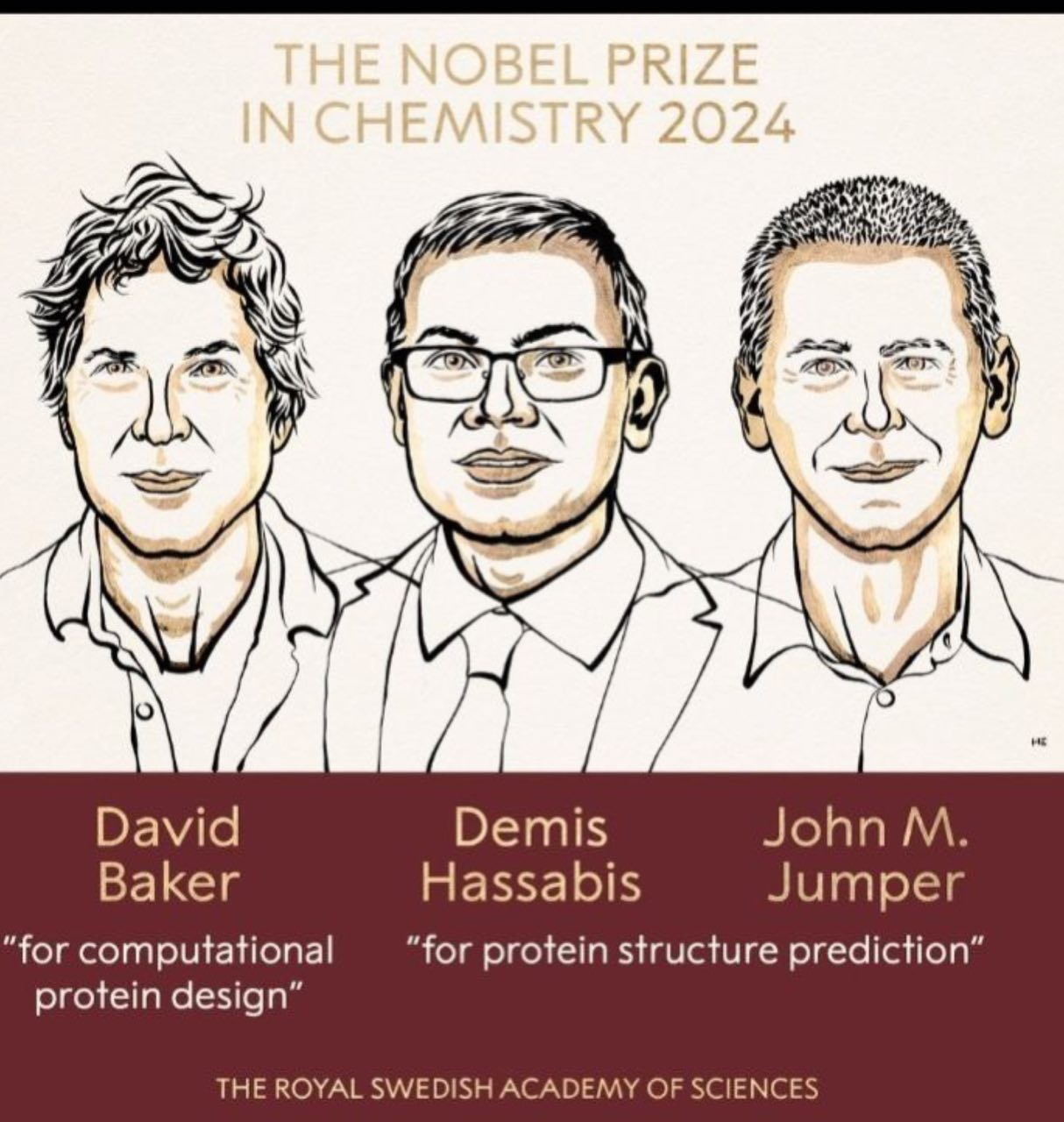This year’s announcement follows the 2023 award, which went to Moungi G. Bawendi, Louis E. Brus, and Alexei I. Ekimov for their discovery and synthesis of quantum dots.
Why is Protein Research Crucial?
Proteins are the building blocks of life, playing a crucial role in nearly every biological process. For example, hemoglobin carries oxygen, while insulin helps regulate blood sugar. Disruptions in protein production can significantly impact human health.
Proteins are made up of long chains of 20 different amino acids, and their unique sequences determine their structure and function. Understanding how a protein folds into its specific shape is essential for comprehending how it works. However, determining protein structures has traditionally been a lengthy and challenging process, often taking months or even years using techniques like X-ray crystallography.
What Achievements Led to the 2024 Chemistry Nobel?
- AlphaFold-A Breakthrough AI Tool for Protein Structure Prediction: Demis Hassabis and John Jumper developed AlphaFold, an AI tool that can predict protein structures quickly and accurately. By using known amino acid sequences, AlphaFold significantly speeds up the process, providing fast and reliable results.
- Rosetta Software and Synthetic Protein Design: David Baker’s Rosetta software revolutionized protein design by reverse-engineering structures, allowing scientists to create new proteins that do not exist in nature. This breakthrough has paved the way for creating proteins with specific functions, such as breaking down plastics, and has major implications for medicine, nanotechnology, and environmental science.
Why is the 2024 Chemistry Nobel Significant?
The work honored by this year’s Nobel Prize simplifies the understanding of proteins, which is key to advancing biological research. It opens new avenues for studying antibiotic resistance, microbial degradation of plastics, and much more. Moreover, these innovations have the potential to transform healthcare, leading to rapid vaccine development, targeted pharmaceuticals, and solutions to environmental challenges.
Additionally, this year’s prize highlights the pivotal role artificial intelligence (AI) is playing in accelerating scientific breakthroughs, showcasing how computational tools like AlphaFold are revolutionizing research.
Fascinating Facts About the 2024 Chemistry Nobel
- About the Winners: David Baker works at the University of Washington in Seattle, while Demis Hassabis and John Jumper are based at Google DeepMind in London.
- Awarded Quickly: Unlike many Nobel Prizes that are awarded decades after the corresponding research, this year’s prize comes relatively quickly—just 4 to 6 years after the work was completed. For instance, John Goodenough, who developed lithium-ion batteries in the 1970s, only won the Chemistry Nobel in 2019.
- Non-Chemists Winning a Chemistry Nobel: This year’s prize continues the recent trend of awarding the Chemistry Nobel to non-chemists, reflecting the interdisciplinary nature of modern science. As laureate Roald Hoffmann once observed, this highlights the wide-ranging influence of chemistry, especially in areas like biochemistry and molecular biology.





